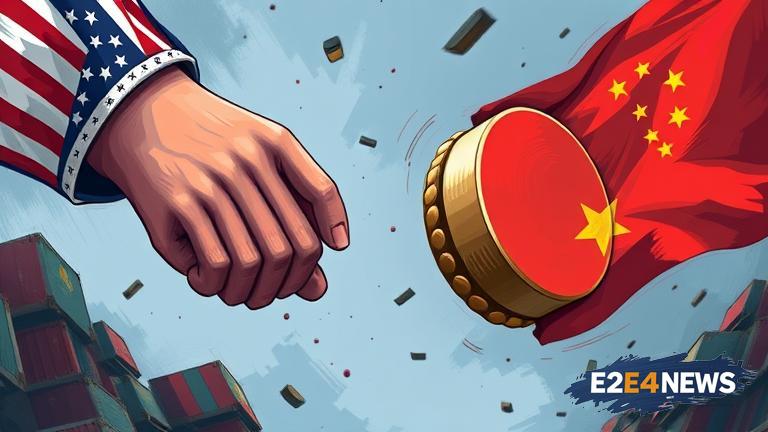The ongoing trade tensions between the United States and China have reached a new boiling point, with President Trump threatening to impose a 200% tariff on Chinese rare earth magnets. This move is seen as a significant escalation of the trade war, which has been ongoing for over a year. Rare earth magnets are a crucial component in the production of various high-tech products, including smartphones, electric vehicles, and renewable energy technologies. The US relies heavily on China for the supply of these magnets, with China accounting for over 90% of the world’s rare earth magnet production. The proposed tariff is expected to have far-reaching implications for global supply chains, with many companies relying on Chinese imports to manufacture their products. The tariff could lead to significant price increases for consumers, as well as disruptions to production and delivery schedules. The move is also seen as a strategic attempt by the US to reduce its dependence on China for critical materials and to promote domestic production. However, the feasibility of this plan is uncertain, given the lack of domestic rare earth mining and processing capabilities in the US. The Chinese government has responded to the threat by warning of retaliatory measures, including the imposition of tariffs on US goods. The trade war has already had significant economic implications, with both countries experiencing declines in economic growth and trade volumes. The rare earth magnet tariff is seen as a key test of the US-China trade relationship, with many analysts predicting that the dispute will have long-term consequences for global trade and economic stability. The US has been seeking to diversify its supply chains and reduce its reliance on China for critical materials, but this process is expected to take time. In the meantime, companies are bracing themselves for the potential impact of the tariff, with many exploring alternative sources of rare earth magnets. The European Union and other countries are also watching the situation closely, as they have significant trade relationships with both the US and China. The rare earth magnet tariff is seen as a critical issue, given the importance of these materials in the production of high-tech products. The US has been seeking to promote domestic production of rare earths, but this effort is still in its infancy. The country lacks the necessary infrastructure and expertise to produce rare earth magnets on a large scale, making it difficult to reduce its reliance on Chinese imports. The trade war has also had significant implications for the global economy, with many countries experiencing declines in trade volumes and economic growth. The rare earth magnet tariff is seen as a key factor in the ongoing trade tensions, with many analysts predicting that the dispute will have long-term consequences for global trade and economic stability. The situation is being closely monitored by companies and governments around the world, as they seek to understand the implications of the tariff and the potential consequences for global supply chains. The US and China are expected to continue negotiations on the trade deal, but the rare earth magnet tariff has introduced a new level of complexity to the talks. The outcome of the dispute is uncertain, but one thing is clear: the rare earth magnet tariff has significant implications for global trade and economic stability. The US and China must work together to find a solution to the trade war, or risk facing long-term consequences for their economies and trade relationships. The rare earth magnet tariff is a critical issue that requires careful consideration and negotiation, given its potential impact on global supply chains and economic stability. The US and China must prioritize finding a solution to the trade war, rather than allowing the dispute to escalate further. The rare earth magnet tariff is a significant escalation of the trade war, and it is essential that both countries work together to find a resolution. The global economy is watching the situation closely, as the outcome of the dispute will have significant implications for trade and economic stability. The US and China must find a way to resolve their differences and promote a stable and predictable trade environment, rather than allowing the trade war to continue indefinitely.
